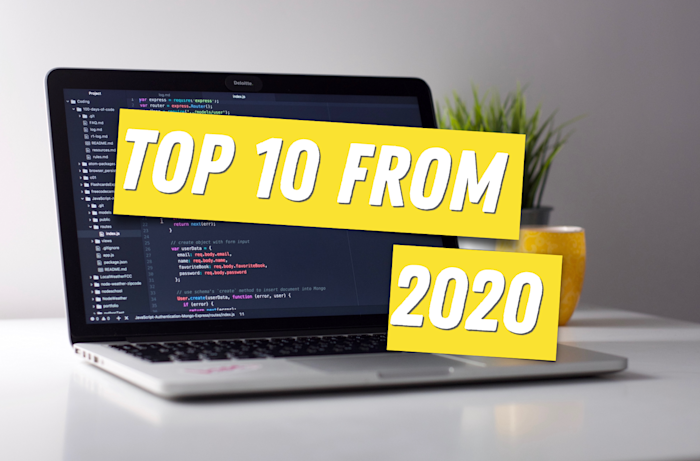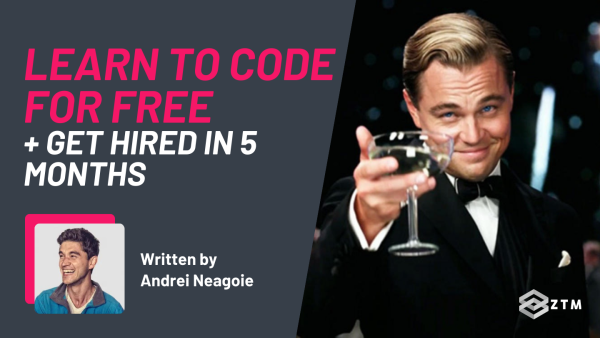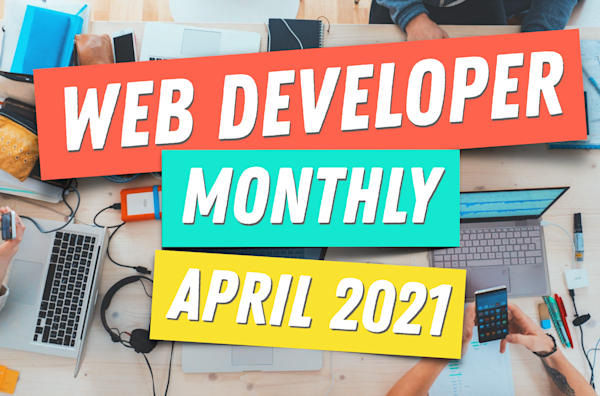To stay on top of the tech industry, I have to read A LOT of industry articles every day. At the end of the year, I like to reflect on what I read and see what has made the biggest impression. Here are the top 10 articles that I believe every programmer should read from this year. Reading these articles has made me a better programmer/engineer/developer/human and I hope it will do the same for you. Let me know if I missed any by sending me a tweet @AndreiNeagoie
Sidenote
I write a top article list like this every year. You can check out the others here:
#1 - Write code that is easy to delete, not easy to extend
You don’t need to throw it all away but you will need to delete some of it. Good code isn’t about getting it right the first time. Good code is just legacy code that doesn’t get in the way.
Good code is easy to delete.
#2 - The Third Age of JavaScript
A bunch of things are moving in JavaScript - it is quite feasible that the JS of 10 years from now will look totally unrecognizable.
#3 - Software disenchantment
What we have today is not progress. We barely meet business goals with poor tools applied over the top. We’re stuck in local optima and nobody wants to move out. It’s not even a good place, it’s bloated and inefficient. We just somehow got used to it.
#4 - Salary Negotiation: Make More Money, Be More Valued
Imagine something a wee bit outside your comfort zone. Nothing scandalous: just something you don’t do often, don’t particularly enjoy, and slightly more challenging than “totally trivial.”
#5 - Cognitive Biases In Software Development
There is a lot more to cognitive biases. It is a very interesting and diverse subject. The more software development grows — the more it becomes dependant not only on the algorithms, data, and hardware but also on soft skills, teamwork, and communication.
And people are not perfect. We often behave in irrational patterns. But if you can detect and understand those patterns, it can help you to make a balanced and honest decision.
#6 - The New Business of AI
At a technical level, artificial intelligence seems to be the future of software. AI is showing remarkable progress on a range of difficult computer science problems, and the job of software developers – who now work with data as much as source code – is changing fundamentally in the process.
#7 - When frontend means full stack
Being a frontend developer puts us between the thing we’re building and the people we’re building it for—and that’s a place some of us really enjoy being, even if it means taking on ever-larger bundles of responsibility from that big haystack of work. Weighty stuff, isn’t it?
#8 - What I Learned from Doing 60+ Technical Interviews in 30 Days
While most of the lessons apply directly to software engineers and technical professionals, the principles behind these lessons can be applied to all careers.
#9 - Beginner’s Guide To Abstraction
Duplication is far cheaper than the wrong abstraction.
And so the eternal war began.
#10 - A forty year career.
As you invest into your pace, the people you know, the prestige you build, the profits to fuel financial security, and your deep and broad learning, something magical starts to happen: each of these makes the others easier. This to me is the joy of a forty year career: things that seem hard early on become easy a decade in, and I can only imagine what it will look like two or three decades in.
Honourable Mention
A heavily biased selection because these articles are written by me, but I believe they are pretty good:
BONUS - A Video Everyone Should Watch from 2020
If this doesn't get you tearing up, you are not human: AlphaGo - The Movie | Full Documentary
By the way, my full time job is to teach people to code in the most efficient way possible as the Lead Instructor of Zero To Mastery Academy. You can see a few of my courses below or see all of my courses by visiting the courses page.




